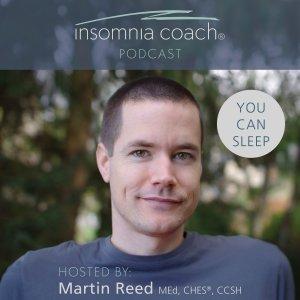Insomnia Coach® Podcast

Busting sleep and insomnia myths with clinical psychologist and behavioral sleep medicine specialist Dr. Jade Wu (#13)
Listen to the podcast episode (audio only)
Dr. Jade Wu is a clinical psychologist and behavioral sleep medicine specialist at Duke University School of Medicine. Her current research focuses on treating sleep disorders in those with chronic illness. In the clinic, she uses treatments that do not involve medication to help people with insomnia, circadian rhythm disorders, and other sleep concerns.
In this episode, Jade and I discuss a number of concerns that are common among people with chronic insomnia — we talk about how much sleep we need, whether we can lose our ability to sleep, whether insomnia is caused by a chemical imbalance in the body, whether chronic insomnia causes any serious health problems, and whether we have any control over the negative impact insomnia can have on our lives.
We also talk about why cognitive behavioral therapy for insomnia (CBT-I) is such an effective treatment for people with chronic insomnia, even if it's present alongside another health condition.
Many people have inaccurate beliefs about sleep and this is a big contributor to sleep-related worry and anxiety that can perpetuate insomnia. My aim with this episode is to help change the way you think about sleep and insomnia. I hope this will help reduce the intensity of any worry or anxiety that might be making it more difficult for you to improve your sleep and encourage you to pursue CBT-I so you can enjoy better sleep for the rest of your life.
Click here for a full transcript of this episode.Click here to hide the transcript.
Martin Reed: Welcome to The Insomnia Coach Podcast. My name is Martin Reed. I believe that nobody needs to live with chronic insomnia and that cognitive behavioral therapy for insomnia (CBT-I) techniques can help you enjoy better sleep for the rest of your life.
Martin Reed: Okay. So thank you so much for sparing some time and coming onto the podcast today Jade.
Jade Wu: Well thank you so much for having me. I'm very happy to be here.
Martin Reed: So let's start right at the beginning. How did you get interested in the field of sleep and insomnia in particular?
Jade Wu: So my background is in clinical psychology and when I was getting my PhD, I actually started out doing research in mood and anxiety disorders. And while I was doing research in that area, it became really clear to me that one common threads through a lot of things I was seeing was sleep problems. Everybody who came in, whether they had generalized anxiety disorder or OCD or depression, everybody has something wrong with their sleep. So I was very intrigued by this and I ended up doing a little bit more neuro-psychology research in Parkinson's disease and there to sleep was a big issue.
Jade Wu: So it just started to dawn on me more and more that sleep was this common trans diagnostic factor that, if we can improve sleep for people, then I bet we can sort of raise the water for all boats. And so that's how I got interested in sleep. And insomnia specifically, I think I just got really interested in, because it's one of the most common sleep problems. And I was working at the VA at some point, and a lot of veterans have problems with PTSD and with insomnia. So that was something so common in the clinic. I just got really interested.
Martin Reed: So I think you hit upon a really important point, just this link with anxiety and just the mental impacts the sleep has. And I think it's kind of like it's two way street. I was actually just talking to a client yesterday and they said to me that they're not sure if they have an in...






 Visit Podcast Website
Visit Podcast Website RSS Podcast Feed
RSS Podcast Feed Subscribe
Subscribe
 Add to MyCast
Add to MyCast